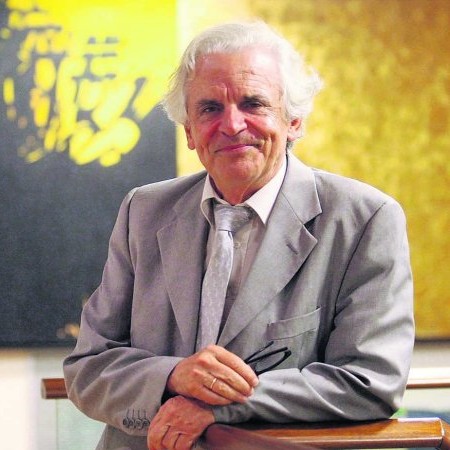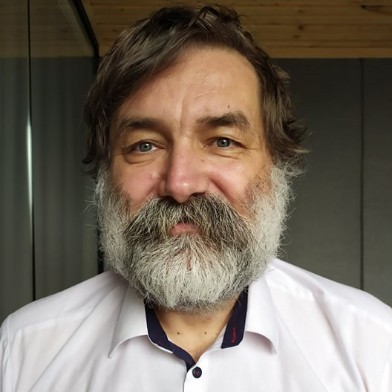Keynote speakers

Natalija Bogdanov is a full professor at the Faculty of Agriculture University of Belgrade where she teaches Agricultural Economics, Agricultural Policy and Rural Development. She is author, co-author or editor of a dozen books, textbooks, research monographs, and numerous book chapters, journal articles and studies on various aspects of agricultural policy and rural development. Her main expertise is in agricultural policy analysis, policy development and socio- economic analysis of rural areas. She has been working as a researcher, expert and project coordinator in many national and international research and development projects funded by the national, regional and international institutions (EC, UNDP, UNICEF, FAO, RRD SWG, World Bank etc.).
The LEADER Approach in the Western Balkans – Current State and Challenges
This paper considers the challenges that Western Balkan countries face in designing and implementing a LEADER –like initiatives. Due to lack of research on these topics, particularly in cross-country context, this research would yield valuable information which could contribute to the current debates of rural policies and assist policy makers, researchers and other practitioners in their further activities.
The agricultural sector and the rural areas of the Western Balkan Countries (WBCs) have undergone remarkable changes in the past two decades. This transformation has been driven by a combination of internal, regional and global forces (political, economical, social etc.) and has been accompanied by policy and regulatory changes. In recent years all countries in the region, supported by international organisations and donors, adopted new strategies and action plans aimed to increase the competitiveness of agriculture production, improve living standard of rural people and to combat environmental degradation and climate change. High priority is also given to strengthening of institutions and local actors of rural development. However, despite some progress in aligning legislation and policies with those of the CAP, many challenges remain, including issues related to the implementation of LEADER.
The aim of this paper is threefold: 1) to provide an analysis of regulatory and policy framework for implementation of LEADER approach; and 2) to present budgetary transfers to the LEADER – like initiatives; 3) to provide insight into the capacities and limitations of relevant actors to respond more effectively and equitably to the needs of rural people.
In this research we employed the different research techniques simultaneously in order to get a deeper and more comprehensive overview of existing policies and practices implemented by national and local/regional governments and donors when dealing with LEADER – like initiatives. A content analysis was performed to examine how the different aspects of LEADER (LAGs, social networks, local partnerships, territory etc.) are approached in national strategic, programming and regulatory documents.
Comparative cross country analysis was performed based on indicators which include: 1) how national strategies and/or action plans of agriculture and rural development prioritise local development approach; 2) existence of regulatory framework and/or guidelines for implementation (rulebooks on selection of LAGs, Rulebooks on Local strategies); 3) government funding support; 3) capacities of actors (administration, CSOs and rural development networks); 4) effective and operational local partnerships are in place. A number of case studies and projects reflecting different approaches are gathered from different sources (direct observations, interviews, project documents, archival records etc.).
The general conclusion is that, despite progress in policy formulation, its implementation remains uneven across countries, yet generally still far away from expectations. This is mostly due to the limited capacities and lack of human resources of all actors, including the lack of awareness about the LEADER approach and its role in rural development.

Brosei
Pedro is currently a thematic & territorial coordinator in the FARNET support unit. Before, he worked in DG AGRI of the European Commission and the European LEADER+ Observatory for Rural Areas. He is an international consultant on local, rural and fisheries development (LEADER/CLLD). He was also vice-president of ELARD (2016/2017) and now volunteers for the Portuguese ELARD presidency.
He graduated in Law from the Free University of Berlin (Freie Universität Berlin), and he also holds certificates in European Studies and in the Management of European Administration.

Champetier
LEADER, PAST, PRESENT AND SOME CHALLENGES FOR THE FUTURE
Yves CHAMPETIER
For more than 40 years, Yves Champetier has been a privileged actor and observer of European policies in support of local development. He has witnessed their development and successes as well as the difficulties encountered.
Since the beginning, as director of the European LEADER coordinating unit, and after director of the LEADER European Observatory, Yves Champetier has been one of the leading experts on this new approach.
Yves will retrace the evolution of this initiative, which has revolutionised European rural development, and highlights the challenges that still need to be overcome in order to achieve "Community-Led Local Development (CLLD)".He will present an overview of the progress that has been made and the challenges facing us today.

© AEIDL

Pascal Chevalier is Professor of Geography in the Department of Geography and Planning at the Paul Valéry University in Montpellier and researcher at the ART-Dev Research Center "Acteurs, Ressources et Territoires dans le développement", UMR 52 81.
His research programs focus on dynamics of rural areas in Europe, and in particular the effects of the implementation of the European local development policy. He has led several research programs including:
- 2017-2019: The rural area in Europe: a differentiated interpretation of trajectories in the French and Lithuanian countryside (MAE Project, Lithuanian Ministry of Research no. 37247RJ Gilibert).
- 2014-2016: As co-directed by Peter Pola (Magyar Tudománnyos Akademia (MTA)) Local economic development and territorial capital in France and Hungary: an institutionalist approach (DELOCAT) .CNRS / MTA
- 2012-2014: As co-directed by Jurgita Maciulyte (University of Vilnius) Territorial Development and Local Autonomy in France and Lithuania: towards a new mode of territorial governance? (DTAL), National research agency, Project No. 28384YM.
- 2009-2012: As co-directed by Marie-Claude Maurel, Director of Studies at the EHESS - Paris, Program of the National Research Agency (France): Local Action and Development in Central Europe.
He has published several books on the effects of the implementation of the European LEADER program, including CHEVALIER Pascal (2014), Action locale et développement rural en Europe – Le modèle européen LEADER 2007-2013, intégration and social cohésion (coll.), RISC n°14, P.I.E Peter Lang Ed., Bruxelles, 202p.

Cunk Perklič
Alina Cunk Perklič
In her 20 years professional period, Alina Cunk Perklič has gained a vast experience in institutional and legal setup of rural development policy like approaches and measures.
From 2000-2015 she was involved in the preparation of the negotiation procedure for the EU membership, setting up of institutions and organisations of the CAP implementation, as well as harmonisation of agricultural legislation. Between her professional period at the paying agency she was responsible for the pre-accession SAPARD accreditation processes and documentation and the general CAP accreditation documentation, the implementation of the CAP measures related to rural development, including LEADER measure.
During 2013-2015 she was the team-leader of the LEADER measure at the paying agency and thus responsible for the effective and with the EU legislation harmonised process of applications and claims for payment control. From 2016 she was assigned to the Slovenian Ministry of Agriculture, Forestry and Food as the Head of the LEADER/CLLD Department and took over as well the tasks of the Head of the CLLD Coordination Committee. Within these responsibilities she has a constant and in-depth relationship with Slovenian and EU LAGs, EU LEADER governmental and non-governmental organisations, EU Rural Networks as well as LAG and LAG-connected organisation in SEE countries. She is an active collaborator for the simplification of the LEADER/CLLD measure.

Jasinska - Muehleck
Karolina Jasinska-Mühleck is in charge of coordination and policy development of LEADER in the Directorate General for Agriculture and Rural Development since 2014. She joined the Conception and Consistency of Rural Development Unit in 2011 after a couple of years spent in Luxembourg working for the European Commission as translator. Her previous professional experience include positions as Information Officer for the LEADER+ Contact Point in Brussels, assistant to Pre-accession advisor in inter-institutional PHARE projects in the field of Common Market Organisation and rural development, freelance translator and tourist guide. Karolina has a background in French philology and applied languages, post-diploma studies of European politics and policies at the College of Europe, and development studies.

Kwatera
Krzysztof Kwatera is the President of the Polish LAGs network “Federation of LAG Małopolska” and, from 2008. President and manager of LAG “Dolina Raby”. He is representative of Polish LAGs in ELARD and in the General Assembly and the LEADER/CLLD Subgroup of the European Network for Rural Development 2014-2020; member of the Monitoring Committee of the Rural Development Programme in Poland 2014-2020 and member of the Working Group of the National Rural Network of 2007-2013 and of 2014-2020. More than 15 years he is a trainer for LEADER/CLLD Programme and for Fisheries LAGs.

Markotic Krstinic
Bojana Markotić Krstinić is Secretary-General and Head of the programme management unit of LEADER Network Croatia (LNC) responsible for development, preparation and co-ordination of strategic development with LAGs and FLAGs, public sector (mainly Managing and Operational Authorities for European Structural and Investment (ESI) Funds) and other multisectoral key stakeholders from public and private groups of social-economic interests.
She’s an experienced project manager and strategic planner. Currently is the main technical advisor for LNC members and plays a key role in the creation of regulations, methodology and support IT tools, monitoring and evaluation for integrated local development, emphasizing on the LEADER/CLLD approach in two Operational Programmes (RDP and OPMF) as member of the Monitoring Committee and Evaluation Working Group For the national RDP; also representative of LNC in ELARD.

Zidar
Aleš Zidar is the president of the Slovenian Rural Development Network, which is a national network of Slovenian LAGs, and he is professionally working as LAG Manager of Local Action Group between Snežnik and Nanos. He is also a member of the Steering Committee of the Ministry of Agriculture and Environment’s Rural Network and member of LEADER experts group.
In more than 10 years as a LAG Manager, he has developed enviable managerial and organizational skills, and through working with development stakeholders, he has proven the ability to find new development opportunities and develop ideas in broad multi-sector partnerships.


